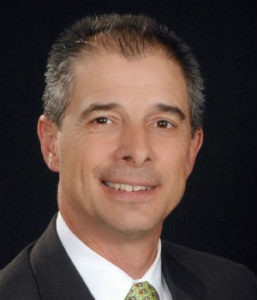 One day in a small town the townspeople heard a child screaming for help. Running to the river that twisted through the town, they saw the young girl struggling against the current. The people worked together and pulled the shivering child to safety.
One day in a small town the townspeople heard a child screaming for help. Running to the river that twisted through the town, they saw the young girl struggling against the current. The people worked together and pulled the shivering child to safety.
The next day they heard another voice. A young boy was fighting for his life at the same point in the river. He was heroically rescued, and the townspeople cheered the bravery of their fellow citizens.
“Our very real situation today is as foolishly tragic as the one in the parable.”
The next day there were three children, and the next day four more. Community leaders met and devised a plan. The town council allocated funding which the townspeople approved in a rare expression of agreement and goodwill. At the river they built a station and equipped it with the best water rescue and first aid equipment. They solicited donations for supplies. They organized a schedule, and volunteers waited in line to sign up.
Day after day more children appeared near the rapids. Each was pulled to safety, given dry clothes, fed and provided shelter. This came at a great cost to the town, but it was a sacrificial gift no one minded paying. These were children, after all.
Week after week this continued until a stranger showed up one day and asked what was going on by the river. He was told of the plight of the children and of the town’s tireless work to save them. Impressed but confused, he asked, “Wouldn’t it be better to send someone up the river and find out who is throwing these children in the water?”
You may be familiar with this old tale that I heard from a revival preacher many years ago. As the spread of the COVID-19 virus began to shut down schools in every state, I watched this parable being enacted boldly, proudly, from sea to shining sea. The outcry for “the children” was immediate. It was genuine, impressive, even inspirational.
And our very real situation today is as foolishly tragic as the one in the parable.
The town of course is our own country. The river is our economic vision. The townspeople are the countless volunteers who have come to the rescue in this moment of dire need. And the children are children, after all, millions and millions of children.
They are the millions of children living in the wealthiest nation the world has ever known who struggle every single day against the powerful and relentless current of poverty and hunger. It is disheartening and embarrassing just to hear the numbers recited, to realize how many millions of children in the United States of America go to bed hungry every night.
Many of the stories over the past few weeks have been heart-warming. Accounts of kindness, unselfishness and generosity speak of the inherent goodness of people. Individuals and families and churches have lined up to help.
“A benevolent trickle will not lift the boats of the uneducated, the unlucky or the working poor in this country.”
Like most congregations, our church chose to shutter all face-to-face gatherings for the time being. But we felt it imperative not to cancel our quarterly “backpack snack packing” program. So, on a recent Sunday afternoon we altered our usual assembly line procedure, spreading out at safe distances from each other across our gym floor. We were still able to prepare 1,000 bags of nutritious food. These are delivered, 150 per week, to hungry children who live practically in the shadow of our church’s steeple. (Yes, there are malnourished children in South Charlotte – an embarrassingly large number of them.)
And so it is across this country – and not just in times of crisis. (Unless you consider that millions of American children are in this same crisis every week.) We gather at the river. Gladly. Generously. Tirelessly. We gather at this rising river of poverty, proudly tossing out the flotation devices, pulling children’s heads above hungry waters … and then we send them back to the impoverished homes of desperate parents who have no choice but to throw their children back in the river again and again and again.
All the while, we pat ourselves on our backs, cheer our comfort and celebrate that the rich are getting richer.
It would probably be cheaper to save the parents. It would certainly be more humane and Christ-like. A benevolent trickle will not lift the boats of the uneducated, the unlucky or the working poor in this country (if they’re even lucky enough to have a “boat”). It will take intentional effort and real money – but no more than the boatloads of money people are gladly giving now to save these children.
The medical experts tell us that COVID-19 is the well-known coronavirus, but a unique strain. Maybe this unwanted virus could serve as an invisible stranger, confronting us at the riverside of our own generosity (that should not be necessary), begging us to ask the obvious, embarrassing question: Why are so many children so poor to begin with?
EDITOR’S NOTE: BNG is committed to providing timely and helpful news and commentary about ways Christians and churches are responding to the coronavirus pandemic. Look for the hashtag #intimeslikethese. You can also use this form to help us identify compelling stories of faith and ministry in these challenging times.
